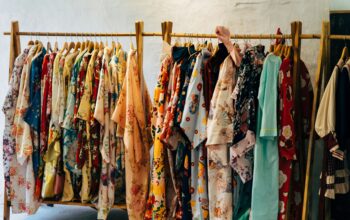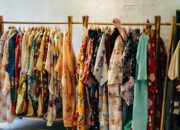Uzone.id – Nowadays, people are more aware of how the fashion industry affects the planet and society. That’s why sustainable and ethical options are becoming more popular. And knitwear is no exception! From organic materials to fair trade practices, there are plenty of ways to find sweaters and knitwear that are cozy, warm, and responsible.
The Importance of Sustainable Knitwear
Knitting sweaters and other knitwear can be pretty bad for the environment. When you use synthetic materials, harmful dyes, and energy-guzzling factories, it can pollute the air, contribute to climate change, and use up a lot of resources.
But the good news is, you can help make a difference! By choosing sustainable knitwear and supporting ethical practices, you’re doing your part to protect our planet.
Sustainable Materials
One of the most important factors to consider when selecting sustainable knitwear is the material. Here are some sustainable options:
1. Organic Wool: Wool from sheep raised on organic farms is free from harmful chemicals and pesticides.
“Organic wool is a more sustainable choice because it reduces the use of pesticides and fertilizers, which can harm the environment,” noted The Organic Trade Association.
2. Alpaca: Alpaca fiber is soft, warm, and hypoallergenic. It is also considered a sustainable alternative to wool. According to the Alpaca Association of the Americas, Alpaca farming is often considered more sustainable than sheep farming because it has a lower environmental impact.

3. Bamboo: Bamboo is a rapidly renewable resource that is biodegradable and eco-friendly.
“Bamboo is a sustainable alternative to cotton because it grows quickly and requires minimal water and pesticides,” explained the Bamboo American Society.
4. Recycled Materials: Knitwear made from recycled materials, like recycled polyester or cashmere, is a great way to reduce waste and save resources. As the Earth Day Network once said, recycling textiles is a crucial step towards a more sustainable fashion industry.
5. Plant-Based Fibers: There are more and more plant-based fibers used in knitwear, like hemp, linen, and tencel. These natural materials are often better for the environment than synthetic ones because they break down naturally and use less energy to make.
Ethical Production
In addition to sustainable materials, it is important to consider the ethical aspects of knitwear production. Look for brands that:
- Fair Trade: Ensure that workers are paid fair wages and work in safe conditions. Fair Trade certification guarantees that workers are paid a fair wage and work in safe conditions.
- Animal Welfare: Prioritize animal welfare in the sourcing of materials like wool and alpaca.
- Environmental Responsibility: Minimize their environmental impact through sustainable practices, such as reducing water and energy consumption. Ellen MacArthur Foundation underlined the role of sustainable practices in reducing the fashion industry’s environmental footprint.

Sustainable Knitwear Brands
There are many sustainable knitwear brands to choose from. Some popular options include:
- Patagonia: Known for its commitment to environmental sustainability, Patagonia offers a range of sustainable knitwear products.
- Eileen Fisher: This brand is committed to ethical and sustainable practices, including using organic materials and fair trade production.
- Veja: A French brand that uses organic cotton and recycled polyester in its knitwear.
- Allbirds: Known for its sustainable footwear, Allbirds also offers a range of sustainable knitwear.
Tips for Sustainable Knitwear Shopping:
- Check for certifications: Look for labels like Fair Trade, Organic, or GOTS (Global Organic Textile Standard). These mean the clothes were made in a way that’s good for people and the planet.
- Read the fine print: Pay attention to what the sweater is made of and how to care for it.
- Support local businesses: Buying from local brands can help support sustainable practices in your community.
- Invest in quality: A well-made sweater from sustainable materials will last longer, so you’re saving money in the long run.
Let’s be honest, who doesn’t love a good sweater? But by choosing sustainable options, you’re not just getting a stylish piece, you’re also making a statement and showing that you care about the planet and the people who make your clothes. So next time you’re shopping for knitwear, look for sustainable options and make a difference.
















